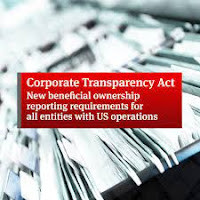In Sanders, (6/20/2023) 160 TC 16, the Tax Court dismissed a pro se taxpayer's petition because it was e-filed late. The taxpayer encountered technical difficulties with the court’s electronic filing platform DAWSON. However, DAWSON was accessible to the public on the taxpayer's last day to file and since he filed his petition 11 seconds late, his petition was untimely.
The court rejected the taxpayer's argument that DAWSON was inaccessible him on the last day for filing.
Under Tax Court rules, when a "filing location" is inaccessible to the public, a taxpayer may have additional time to file a petition. Under Code Sec. 7451, a filing location is the Tax Court Clerk's office, or "any online portal made available by the Tax Court" for e-filing petitions.
Inaccessibility isn't defined in Code Sec. 7451. However, the Tax Court found that while inaccessibility includes an outage of an electronic filing system, inaccessibility does not include user error or technical difficulties on the user's side. According to the court, the record showed that DAWSON was operational at all relevant times and the taxpayer logged in multiple times on the last day for filing his petition. Although the taxpayer's login attempt at 11:59:15 failed, another petitioner was able to file before midnight. This successful login showed that DAWSON was working properly.
The court also specifically rejected an amicus argument that the timely mailing rule should apply to electronically filed petitions. The timely mailing rule is an exception to the general rule that a document is filed when received. Under that rule, a document that is properly mailed before its due date, but received after that date, is considered filed on the date it was postmarked. The court previously held that the timely mailing rule doesn't apply to an e-filed petition in Nutt, (5/2/2023) 160 TC No. 10.
In Nutt, the Commissioner mailed a notice of deficiency to the Nutts on April 14, 2022, determining an income tax deficiency and an accuracy-related penalty for 2019. Notwithstanding the actual mailing date, the notice was dated April 18, 2022, and the notice stated that the last day to file a petition with this Court was July 18, 2022. That date was a Monday and was not a legal holiday in the District of Columbia.
The notice stated that the Nutts could “get a petition form and the rules for filing from the Tax Court’s website at www.ustaxcourt.gov, or by contacting the Office of the Clerk at . . . 400 Second Street, NW, Washington, DC 20217.”
The Commissioner also sent a letter dated June 7, 2022, to the Nutts in which he reduced the amount of the deficiency and reminded the Nutts of the July 18, 2022, deadline to file a petition in the Tax Court.
While residing in Alabama, the Nutts electronically filed their Petition. At the time of filing, the Court’s electronic case management system (DAWSON) automatically applied a cover sheet to their Petition. The cover sheet shows that the Court electronically received the Petition at 12:05 a.m. eastern time on
July 19, 2022, and filed it the same day. When the Court received the Petition, it was 11:05 p.m. central time on July 18, 2022, in Alabama.
The IRS filed a motion to dismiss the petition for lack of jurisdiction, arguing that, unlike the rule governing tax return filings, the date a petition is treated as filed before the court is determined by the court’s time zone, rather than the taxpayer’s.
Have an IRS Tax Problem?
Contact the Tax Lawyers at
www.TaxAid.com or www.OVDPLaw.com
or Toll Free at 888 8TAXAID (888-882-9243)
Read more at: Tax Times blog












